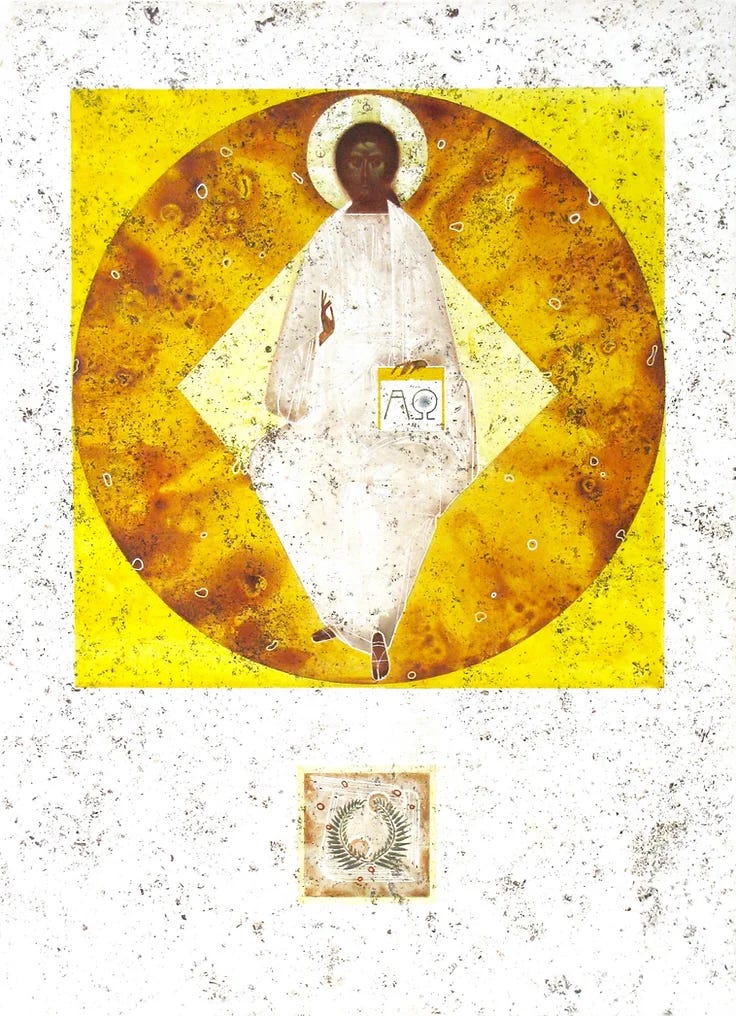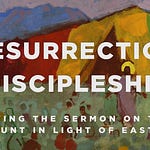As a teenager, I served as an usher at Calvary United Methodist Church in Frederick, MD. Being there 45 minutes before the service began had its perks—being first in line for the doughnuts prepared for fellowship time. The usher crew would distribute bulletins, help congregants find their seats, and then, as the service began, sneak off to the fellowship hall for a break. We’d grab a doughnut and drink, then slip into the chapel next to the sanctuary to listen to the sermon. Reflecting on Galatians 2 this week jogged a memory of sitting in the dimly lit chapel and hearing one of the pastors say, “Our lives are meant to be cruciform.” I had no idea what the pastor meant, so I leaned over to one of the other ushers and asked. He didn’t know either but suggested I ask the pastor after the service. I never did.

In churches everywhere, we see crosses on altars, bookcases, closets, and walls. I’ve even seen the outline of a cross long after it had been removed from a wall. Crosses are everywhere; we wear them around our necks, yet we rarely discuss what it means to live a cruciform life. To live a cruciform life means our lives take the shape of the cross. Paul tells us that we have been crucified with Christ and that Christ now lives in us. This isn’t just some lofty spiritual idea or metaphor; it’s a call to live our lives mirroring the sacrificial and abundant love of Jesus. Everything we do—our giving, our vocations, our daily choices—flows from Christ, who lives and works through us.
“I have been crucified with Christ, and it is no longer I who live, but Christ who lives in me,” wrote Paul. Imagine that: Jesus living in us, shaping our hearts and actions. But what does that mean for our day-to-day lives? It means that, as followers of Christ gathered from all over the world, we no longer live for ourselves. God's grace has redefined our purpose, our very existence. It’s not just about going about our business anymore; it’s Jesus at work in and through us, especially in our generosity.
The cruciform life echoes throughout Scripture and church history, reminding us that God uses ordinary people like you and me to uphold and sustain the world. “The reign of God comes only to those who realize they cannot make it come,” Robert Capon wrote. Our job isn’t to achieve God’s Kingdom on our own. Instead, the Kingdom is a gift we participate in when we surrender our agendas and allow Christ to work through us. We’re not “making” it happen; the Kingdom unfolds through the church because Christ is alive in us.
This might sound intimidating because if Jesus truly lives in us, others may experience Christ through us. In Christ, we are brought into a relationship with one another. Jesus living in us means we become vessels through which others experience God’s peace and love. Our generosity, then, reflects God’s generosity toward us. When we are generous with our time, resources, and love, Christ’s generosity shines through. And as we clothe ourselves in Christ, Christ also wears us. In baptism, we put on Christ and clothe ourselves in His grace. But have you ever thought about it the other way around? That Jesus wears us in the world, walking through our neighborhoods, sitting in our workplaces, standing in line at the grocery store? We are God’s living, breathing vessels of love.
Generosity is often seen as a transaction, but for Christians, it’s something much deeper. As John Wesley would say, it’s an outward sign of an inward grace. Just as God lavished grace upon us, we’re called to give—not out of obligation but profound gratitude. We give because Jesus lives within us, and it’s in His nature to give abundantly. This generosity becomes a natural outpouring of our cruciform lives.
Our stewardship theme this season is “Our cup runneth over,” the cruciform life connects beautifully with this image. When Jesus’s love and grace shape our lives, our cups run over. We are filled to the brim by the God who gave everything for us—even His life on the cross. And when that love fills us up, when we are full of grace and being moved by the Holy Spirit, it can’t help but spill over into every part of our lives.
Generosity isn’t limited to what we place in the offering plate. If Christ lives in us, then every part of our lives becomes an opportunity for God to pour His love on the world. Whether you are a teacher, engineer, student, lawyer, lobbyist, or retiree, Jesus uses your vocation to bless creation. Our work is cruciform, shaped by God’s self-giving love.
Every interaction is an opportunity for generosity. Robert Capon reminds us, “Grace is free but not cheap.” Our lives embody this costly grace, reflecting the sacrificial love of Christ. When we give from the abundance God has given us, we witness an unearned and overflowing love.
In Galatians, Paul writes that the early church leaders encouraged him to remember the poor, which he says he was already eager to do. This call to care for others flows from Christ within us. When generous with our time, resources, and love, we participate in God’s mission to renew the world. Jesus is at work, not just in us, but through us—using our hands, voices, and presence to share His love with a world in need. It’s a powerful thought: others might encounter our risen Lord through our lives and actions. It’s both humbling and frightening but also the greatest honor we could imagine. When we embody this cruciform shape, Jesus can shine through our smallest acts of kindness and generosity.
Reflecting on my days as a church usher, I realize that what seemed like a simple task—passing out bulletins, helping people find their seats, and sneaking off for a doughnut—was a small expression of generosity. Though I didn’t know it then, that early experience of serving others was a cruciform act in its way, mirroring how Christ serves and welcomes us into His love.
The funny thing is, in the same way, we, as ushers, brought people into the sanctuary, Christ invites each of us to be ushers in the world. We’re called to bring people into His presence by handing out bulletins and offering ourselves—our time, resources, and love—as vessels of His grace. Our cups overflow when we pour out what we’ve received from Christ.
The generosity we’re called to isn’t something we have to muster on our own. It’s Christ’s generosity, grace, and love flowing through us. We don’t live for ourselves but for the one who died and was raised for us. The work we do, the resources we share, and our lives are opportunities for us to wear Christ, for Christ to wear us, work through us, and bless the world. As Jesus pours out His love through us, may others encounter Christ, finding hope and grace that overflows like a cup running over.
















Share this post